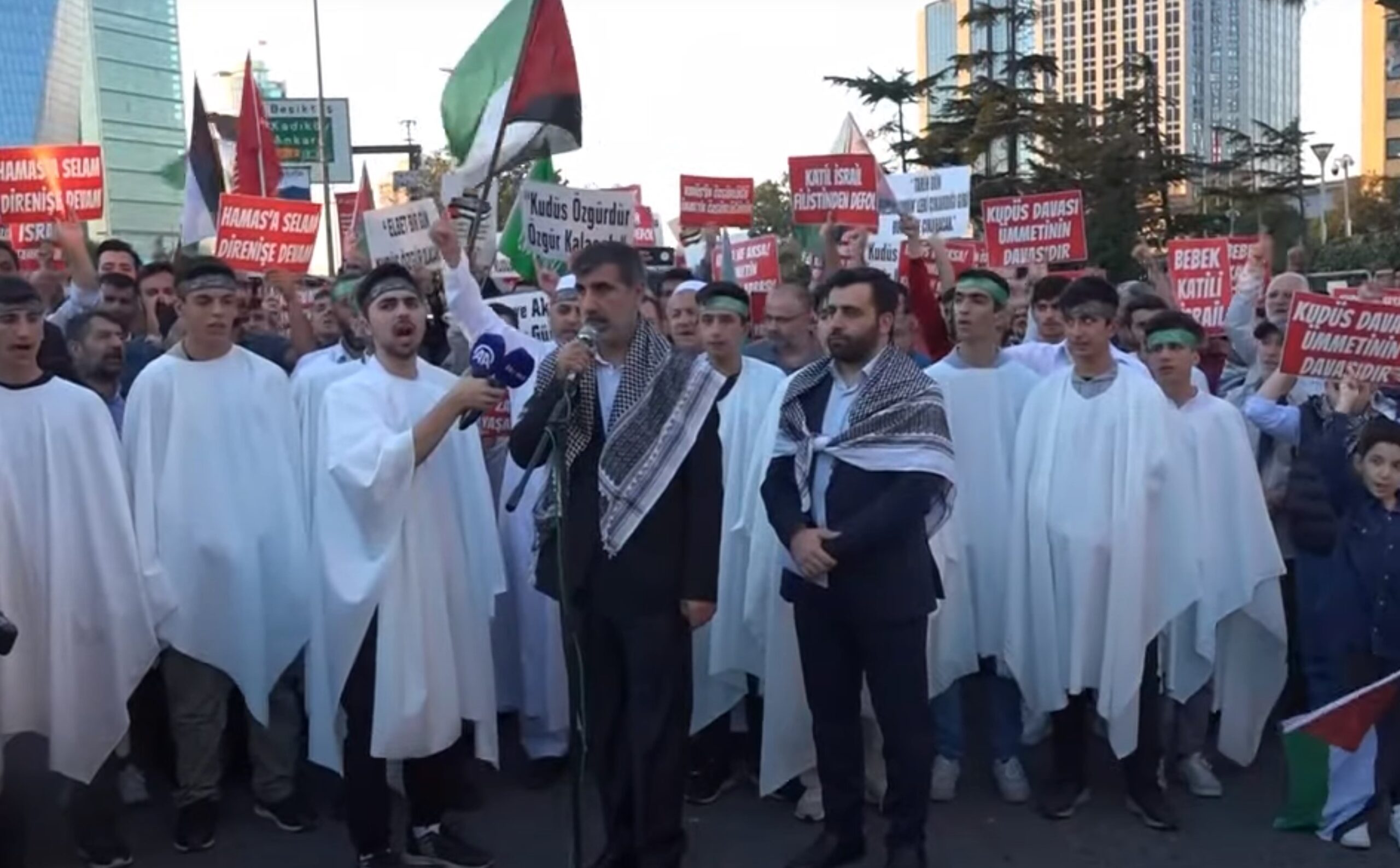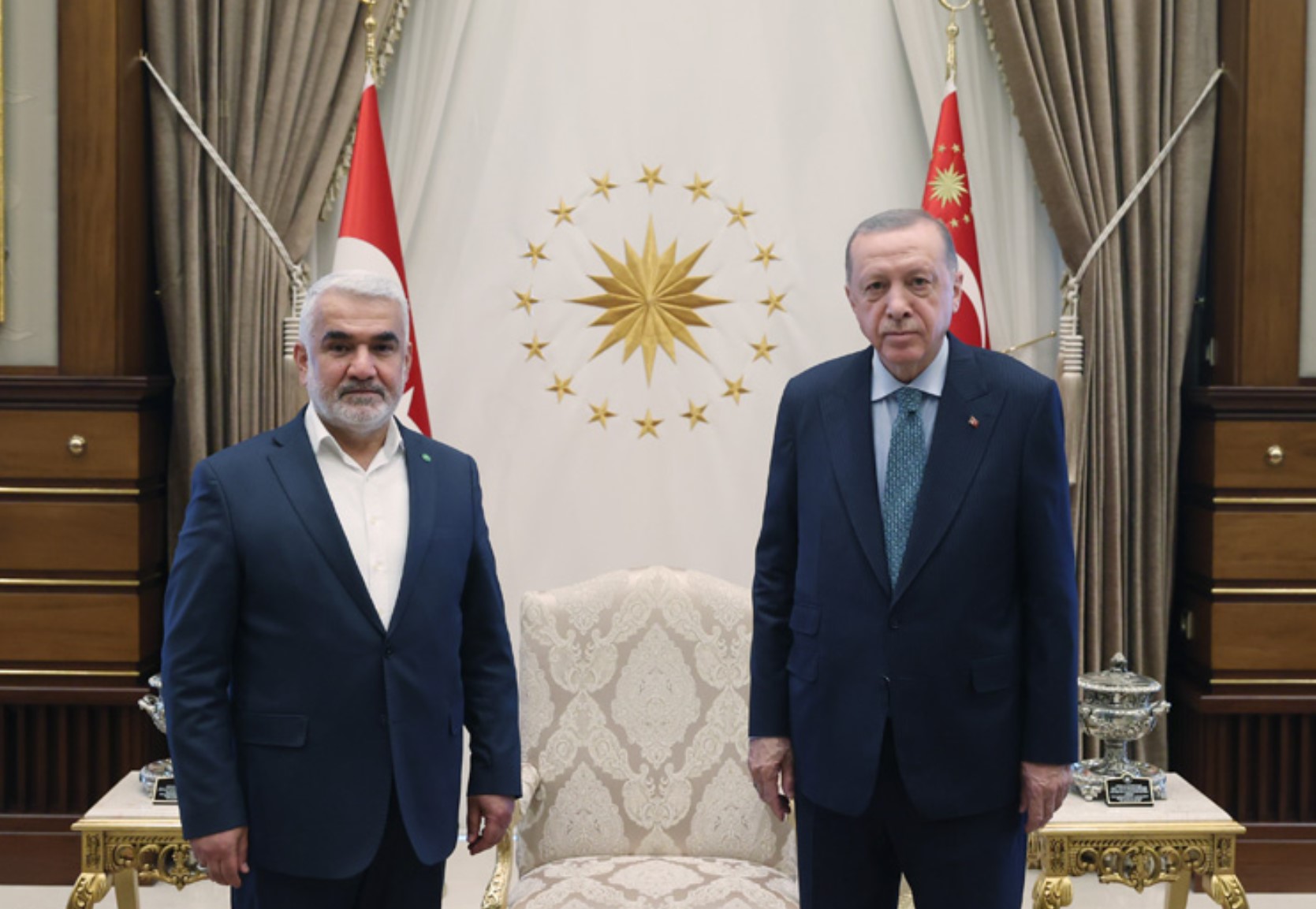Levent Kenez/Stockholm
A jihadist group attacked a Starbucks coffee shop and a Burger King fast food restaurant in Diyarbakır last weekend to protest against Israel. The crowd, shouting slogans, entered the stores, causing panic among the customers, who were seen fleeing in fear. Some employees and customers were assaulted, and the group caused significant property damage. Security camera footage showed the group chanting, “War, jihad and martyrdom,” with police and security guards appearing to escort rather than intervene. Following a surge of reactions on social media, the governor’s office had to launch an investigation into the incident.
However, this is not the first recent incident by groups supported by the government of President Recep Tayyip Erdoğan in predominantly Kurdish areas. On June 9 the same group stormed a dance school event in a Diyarbakır park, assaulting the youngsters dancing. Approximately 50 people, uttering jihadist slogans, dispersed the performers. Numerous ambulances arrived on the scene following the incident, which again saw no police intervention. Several officials from the Free Cause Party (HÜDA-PAR), with which the group is affiliated, posted messages on social media congratulating the young assailants for their actions.

In May HÜDA-PAR, a fundamentalist political party and political wing of Turkey’s Hizbullah, officially aligned with President Erdogan’s ruling Justice and Development Party (AKP), organized rallies across Turkey to commemorate the memory of Hasan Saklanan, a 34-year-old radical Turkish imam employed by the government who carried out a knife attack on an Israeli border police officer in Jerusalem on April 30. This incident starkly highlights Turkey’s disturbing evolution into a breeding ground for extremism under Erdogan. Hizbullah, a separate entity from Lebanon’s Hezbollah but sharing a commitment to Israel’s destruction and supported by Iran, hailed Saklanan as a hero and a martyr.
Since October 7, 2023 HÜDA-PAR has organized mass gatherings in support of the Hamas attacks on Israel and staged rallies in dozens of cities across Turkey. During these demonstrations, antisemitic slurs and pro-Hamas slogans were frequently shouted, while the police refrained from getting involved. Not a single investigation has been launched by prosecutors into any incident that amounted to a hate crime or incitement to violence.
In the national elections held in May 2023, a discrete, decade-long alliance between the Iranian-backed Hizbullah and the Erdoğan government became official. Three figures affiliated with Hizbullah secured parliamentary seats on Erdogan’s AKP ticket. One of them, Şahzade Demir, addressed parliament on October 10, urging the government to prevent the entry of Jews fleeing Hamas attacks and to prohibit Turkish Jews from enlisting in the Israeli army reserves. He also called for the revocation of Turkish citizenship for those Jews who volunteered for Israeli military duty.
Suheil Ahmad Hassan al-Hindi, a member of the Hamas leadership, has been instrumental in organizing anti-Israel rallies in Turkey, working closely with Hizbullah. In December 2023 al-Hindi was a featured speaker at several rallies held across Turkey, including an event on December 3 in Diyarbakir hosted by Vedat Turgut, the provincial chairman of HÜDA-PAR. He has also frequently appeared in interviews with Turkey’s state-run news agency.

In 2022 senior Taliban leader Zabihullah Mujahid addressed Islamic scholars at a meeting in Diyarbakır, emphasizing the Taliban’s view of the Turkish government as a close ally. Representatives from jihadist foundations and media outlets funded by Erdoğan’s ruling party also participated in the event, organized by the Union of Islamic Scholars and Madrasahs (İTTİHADUL ULEMA), which is affiliated with HÜDA-PAR.
The Erdogan government’s support for groups close to HÜDA-PAR also aims to diminish the influence of the outlawed Kurdistan Workers’ Party (PKK) in Kurdish regions and to intimidate local residents by means of jihadist groups. Hizbullah was founded in the ’80s and gained prominence in the ’90s by recruiting predominantly Kurds in southeastern Turkey, receiving support from certain factions within Turkish intelligence, military and police to counter the outlawed PKK.
Many former Hizbullah militants and leaders who were in prison were released due to amnesties pushed by the Erdogan government and have fled to Iran.
HÜDA-PAR denies involvement in the violent incidents in the region and accuses the Peoples’ Equality and Democracy Party (DEM Party) and other Kurdish groups of falsely accusing them.












